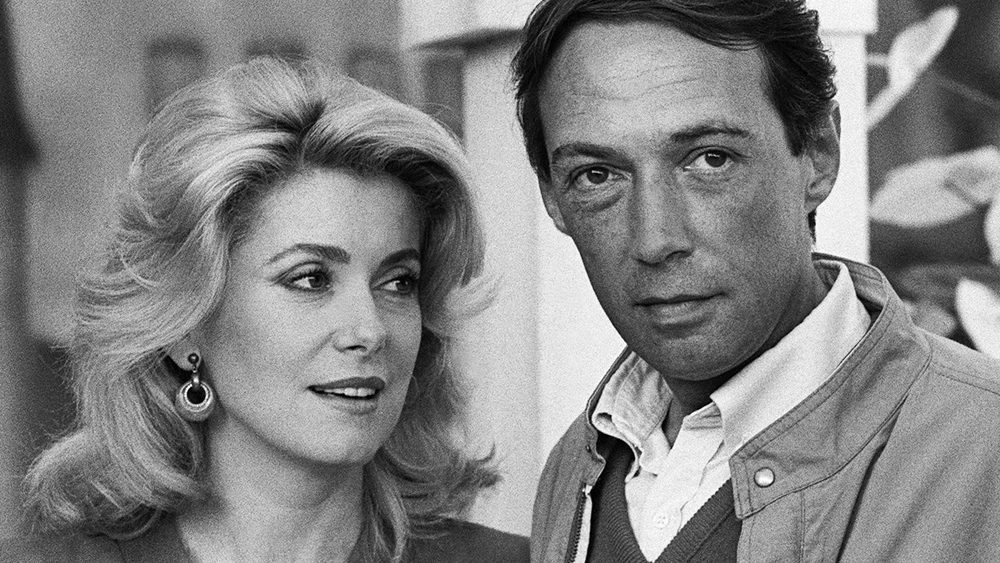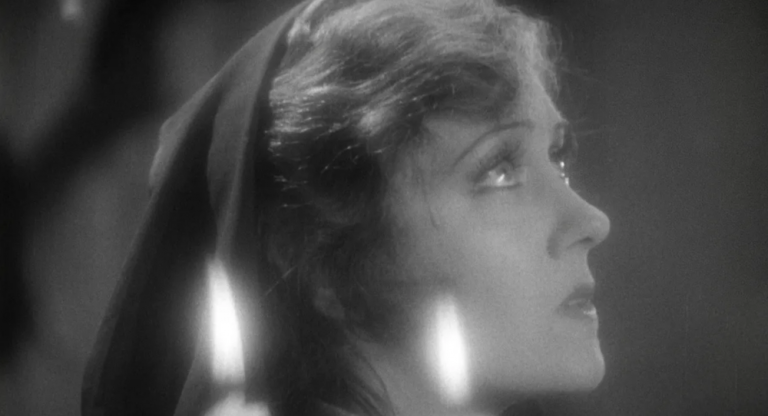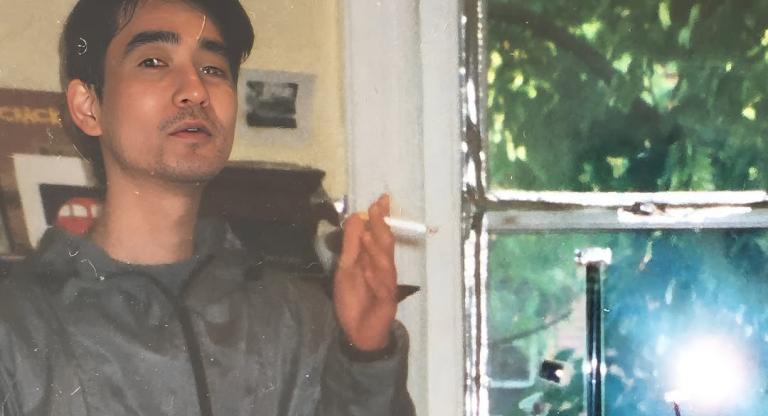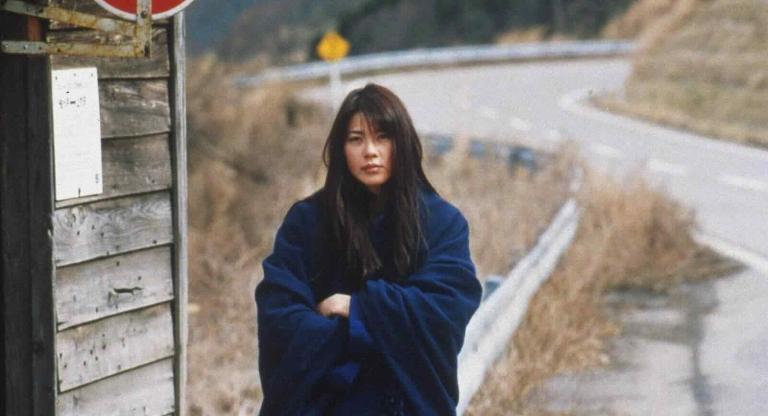A quintessential product of the nouvelle vague, the director and screenwriter André Téchiné began his career as a critic at Cahiers du cinéma. He started to make his own films after working as an assistant for Jacques Rivette on L’amour fou (1969), and his first feature, Paulina s’en va (1969), launched a career that has lasted decades.
Currently, a retrospective at the L’Alliance New York details his illustrious, decades-spanning collaboration with the French icon Catherine Deneuve. The following interview provides a generous and lively account of his career. Téchiné talks about Catherine Deneuve’s spellbinding presence, his love of literature, the inspiration he takes from the poetic cinema of Jacques Demy, and Roland Barthes’s crippling fear of being filmed.
Téchiné and I spoke over the phone ahead of the weekend, and this conversation has been translated and edited for clarity.
Helen Fortescue-Poole: You began your career, like many in the New Wave, as a critic for Cahiers du cinéma. Then, you worked with some of the great filmmakers who also started their career there—for example, with Jacques Rivette on L'amour fou. What are your thoughts on that experience?
André Téchiné: I started learning about cinema through reflecting on other peoples’ films, and on cinema’s history. It was an education that took place at the Cinematheque Francaise, and it was a theoretical education. I wrote about cinema, but I received no technical training. I believe this was the case for most French filmmakers at that time. In other words, we were film enthusiasts who proceeded straight into the practical side of filmmaking, with an approach to films arising from an engagement with the history of cinema and not from academic training.
I became Rivette’s assistant, who was then editor-in-chief at Cahiers du cinéma. Working with Rivette taught me a lot intellectually, imaginatively, and about the excitement of working with actors. However, it was not a very useful or formative experience for me with regards to screenwriting techniques because Rivette did not use a script and instead improvised each day. He loved doing that, so it was difficult for me to develop a relationship with screenwriting. It remained a great mystery to me. But at the same time, it was an opportunity that gave me the illusion of great freedom, and of great freedom of possibility in the world of cinema. Maybe too great of an illusion, even!
HFP: You've also worked with other former editors at Cahiers, such as Pascal Bonitzer on Scene of the Crime [1986], My Favorite Season [1993], and Thieves [1996], as well as Olivier Assayas. What was your working relationship with both of them on these films?
AT: I have a lot of admiration for what Olivier Assayas does as a filmmaker. He is definitely the best collaborator and screenwriting partner that I’ve worked with. Pascal and I were able to work together extremely intuitively and quickly. We would disagree and then we’d move on. It was within the framework of our relationship that we shared both complicity and a critical spirit, so it was possible for us to reject each other’s suggestions without hurting each others’ feelings.
I have marvelous memories of working with Olivier, but with Pascal it was quite different. With Pascal, it depended on the project. For example, with The Brontë Sisters [1979] he did very well with regards to the documentary aspects, and in treading the knife’s edge between the language of the 19th century and the dialogue of a contemporary film. But in other films, like My Favorite Season, he left me to work alone and didn’t participate too much.
He did not have the same investment in each film. It depended on what I asked of him. He understood that there were certain films that were really demanding, often in terms of documentary research, and other films that were more personal and autobiographical. In the latter case, all of the information was in me, so I didn’t need to look elsewhere or ask him for help. It was a fertile relationship, but less passionate and intense than the relationship with Olivier. They didn’t have the same character. You have to always adapt with regards to your writing partner, and no two personalities are alike.
![Hôtel des Amériques [1981]](/sites/default/files/inline-images/Hotel-des-Ameriques.jpg)
HFP: After your first collaboration with Deneuve, Hôtel des Amériques [1981], which you once called your “deuxième premier film,” you spoke about no longer drawing your inspiration from cinematic genres. How do you understand the difference between these early films and your later career, which in your words started anew with this film?
I used to say that my knowledge of cinema was a knowledge of the Cinematheque. It was a knowledge of how the audience views and studies films. I think that all the films that preceded Hôtel des Amériques are films that reflect my own history with cinema. They’re reflections of my history with cinema as it pertains to my own family history, which took place in France. They embrace a type of expressionist reverie in silence and when talking—I’m thinking about Barocco [1976]. I was still making formalist cinema. My approach to The Brontë Sisters, which was a very rigorous film from a documentary perspective—even though it was filmed in French—was still quite daring. It had very stylized and formalist aspects, which I abandoned when I met Catherine Deneuve.
When I made my next film, Hôtel des Ameriques, I was not certain that I’d entirely rejected stylization, because it’s not possible. All the same, I was looking at cinema in a different way. I looked at actors in a different way. I looked at filmmaking techniques in a different way. I directed my characters in a different way. I would not have been able to fit Catherine Deneuve into a system like those in Barocco, French Provincial [1975], or The Brontë Sisters, because those systems were too controlled, too formal, too aesthetic.
In a way, [Deneuve] taught me to let go of my obsession with mastery. To relax a little. You can’t film Catherine like one of Robert Bresson’s models. It’s impossible to do so, because her presence alone brings something with it. She changed my attitude, because she was like a Sphinx to me, and I was trying to decipher her. I was not trying to “master” her in the way that I had done with previous actresses and actors. On the contrary, I wanted to make a sort of documentary on her depth as a person and an actress because she made me so dizzy.
HFP: This series is devoted to Catherine Deneuve, but you've also worked recently with Isabelle Huppert in Les Gens d'à côté [2024], and with Isabel Adjani in The Brontë Sisters. I’d like to ask what motivates you to work with these huge stars?
AT: I’m not sure what films have been released in the U.S. But very frequently, not all the time, I make films with people who are completely unknown, like Wild Reeds [1994]. It’s a film with no stars in it at all. I like to make films with these big stars when I’m fascinated by their stature and mystery, and when they demonstrate that this isn’t just their job, because that doesn’t interest me much. It’s when they manage to sublimate their profession into something else, by means of their own singularity, in front of the camera [that I become interested]. But I still very much like to make films without stars.
With The Scene of the Crime, for example, Catherine Deneuve is a star, but the main character, who makes his solemn first communion at 11 years old, was an absolutely unknown person. I very much like these mixtures. For example, in The Brontë Sisters, there was Isabelle Adjani and Marie-France Pisier who were stars, but the role of the brother [Branwell, played by Pascal Greggory], which was actually the main part and the driving force of the film, went to a completely unknown actor.
HFP: In your episode of Cinéastes de notre temps, you spoke about your love of the films of Jacques Demy. Elsewhere, Catherine Deneuve has compared you to him in terms of your largesse, your intimacy, and your lyricism. How do you think Demy influenced your work as a filmmaker, especially in working with Deneuve, who has such a big cinematic “memory” attached to her vis-à-vis Demy’s films?
AT: I love Demy's films. He's a filmmaker who means a lot to me. It’s hard to say exactly, but one lesson I took away from his films was the willingness to make a mockery of realism. And, a desire to inspire the actors in my films with certain shots and lyrical moments. [Pier Paolo] Pasolini used to say that there was a cinema of prose and a cinema of poetry. For me, Demy’s films are poetic cinema. It’s not for me to say, because it would be a little pretentious, but I am more attracted to a cinema of poetry than a cinema of prose. It’s not that I find poetry to be superior to prose, it’s just a different affective domain.
HFP: One of the most characteristic things about your films is that they center women. Catherine Deneuve once described you, in a complimentary way, as a “feminine” director. What interests you about these women-centric narratives?
AT: When I first think of a film, the narrative is not the first thing on my mind. I first think about the cinematic experience, and wanting to immerse the viewer in a cinematic experience. It’s the characters that are the driving forces behind the narrative. They make the story.
One of the reasons I keep working with Catherine is that I have the impression that she is someone with no ceiling. You might think you’ve reached your ceiling with her, but then you discover something beyond it. I’m talking about height, but we could also be talking about her great depths. There’s something double or triple about her. I get the impression that she still has a lot left in her. We haven’t yet seen the end of all the magic she can provide, and all of the transformations she can offer the filmmaker. I like her a lot in [Luis] Buñuel’s Tristana [1970] for example, where at the beginning of the film she's a young woman completely in love, and by the end of the film she has become an old woman with a mean look in her eyes. It's quite extraordinary that she is able to demonstrate such an overall vision.
HFP: I’d like to hear more about your decision to cast both Catherine Deneuve and Daniel Auteuil in both My Favorite Season and Thieves. What was interesting to you about recasting the pair in the latter?
AT: When I made My Favorite Season, it was perhaps the first time that I tried to imagine an actor playing my alter-ego. That’s why I thought of Daniel Auteuil. The film has real autobiographical resonance. I really liked the couple, which wasn’t necessarily a sexual couple, like we usually construct couples in cinema. I very much liked this brother-sister pair. I wanted the film to speak to its resonances with my own personal history, and my family life. In this case, the relationship between my mother and my sister.
Then, [with Thieves], I wanted to create a fiction as far removed as possible [from my own reality], and a character who was not my alter-ego, but the opposite of me. That’s how I came up with the character of Alex, the cop who is a rather tormented character, possessed by a kind of darkness and a desire for revenge against his family, with whom he cut off ties. He declared war against his family with his profession, and he’s a character that is far from flawless: he’s quite underhanded, tortured and vicious. Daniel was terrific in this role. The character is the opposite of the one he played in My Favorite Season; it all fits together very well for me. Thieves represents opposition, rather than repetition.
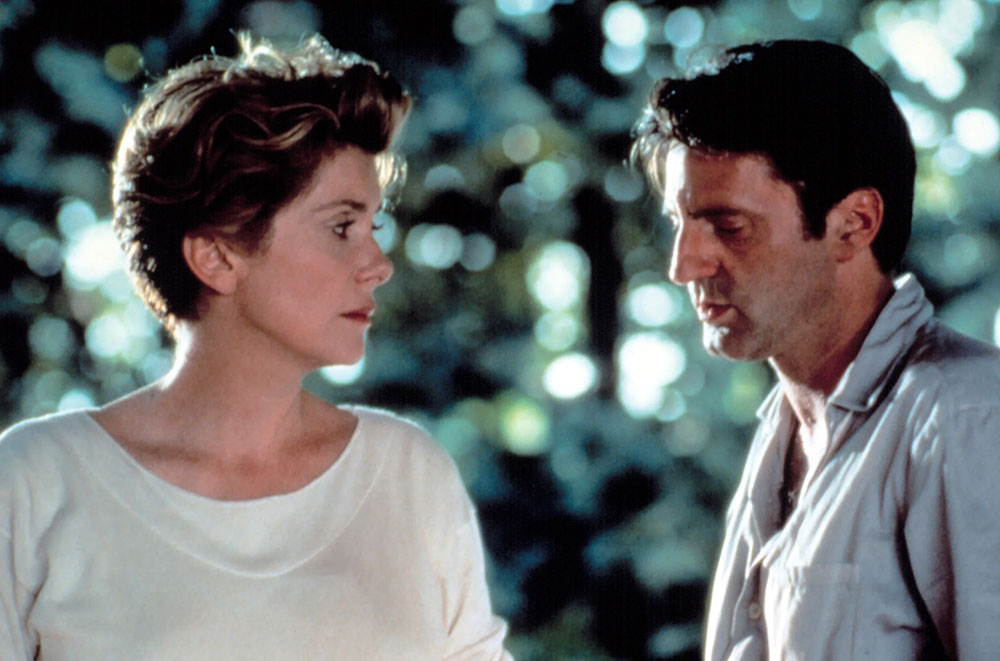
HFP: Olivier Assayas compared the unusual structure of Thieves to a William Faulkner novel. To me, there seems to be something of Zola’s Les Rougon-Macquart in the film too, in the themes of transmission and repetition, and of destruction within a family. In other interviews you've mentioned Stendhal. What is your relationship with literature and how do you see its role in your filmmaking?
AT: This is an important question and you’re right to ask it. However, it’s difficult for me to answer, no doubt because I lack specialist training. Both cinema and literature were very formative in my life. They both made me want to grow up and venture into this difficult profession. To my mind, it’s a little bit too rigid to oppose “cinematic cinema” and “literary cinema.” I find it too rigid and clear cut. I have a tendency to consider the ways literature and cinema interpenetrate, and to not think that they are necessarily enemies, but that they can coexist and maybe even complement each other. That's why I'm also very fond of Pasolini and [Marguerite] Duras, who do both jobs equally well: that of the writer and that of the filmmaker. It’s true that Faulkner meant a lot to me, not only in the structure of Thieves, but in a film like The Innocents, which is very choreographed and stylized. It was also the case in The Scene of the Crime. I was thinking about Faulkner a lot.
English and American literature has meant a great deal to me. It had a much greater impact on my imagination than French literature, some great exceptions notwithstanding. You mentioned Stendhal, whom I adore, but there’s also Proust. There are obviously writers in the French tradition that I adore. But there was something in Anglo-Saxon literature that appeared to me to be more poetic.
HFP: In other interviews, you’ve mentioned the effervescent cultural and intellectual currents of the historical moment in which your career was beginning. You worked with Roland Barthes on The Brontë Sisters, and have mentioned that you, like many others in your milieu, were excited by the ideas of Jacques Lacan and Gilles Deleuze. In what ways, if any, do you see an influence of the theoretical currents of the 1960s/70s on your filmmaking?
AT: When you ask me about this, I get the impression we’re in Jurassic Park! It’s totally prehistoric, but it was my culture, and I was immersed in it. In the marketized world that we live in today, it seems a little alien now, doesn’t it? These thinkers taught me to think, and taught me how to see the world. The films I’ve made are evidently a product of that, but it’s very different from the cinema we make today.
HFP: It's not playing in this retrospective, but I have to ask: how was it working with your former mentor Roland Barthes as an actor?
AT: He worked with me on The Brontë Sisters to make me happy. He was absolutely petrified. He couldn’t learn a text by heart, so he had to write the lines on a board, and he read them from there. You can absolutely see he was reading from the text, with this completely mis-directed eyeline and a completely monotonous voice. He had to recite the lines like that because he found being filmed traumatizing. At the same time, I’m glad he agreed to do it. I never asked him in terms of wanting to see him act, or anything. The aim was to consecrate Charlotte Brontë at the opera in the presence of a literary star of the era, and Roland was that. In the end, it was this sacralization that was important for me to film.
HFP: In both The Girl on the Train [2009] and In the Name of the Daughter [2014], you draw inspiration from real-life events. How do you view the difference in process between your films that are works of “imagination” and those that are works inspired by real events?
AT: Most of these films that are based on real-life events are commissioned films. Most of the time I try and make them my own obviously, but the initial idea for The Girl on the Train came from a producer, as was In the Name of my Daughter. When I receive a commission, I think about whether or not I feel capable of executing it.
With In the Name of My Daughter, it was the presence of Catherine Deneuve that convinced me. She had just played a suburban nursery assistant in my last film, and I wanted to see her become the empress of a casino on the Cote D'Azur—it’s a cinematic dream. Catherine’s desire was one thing, but I had also read the letters by Agnès le Roux [that she had written to her lover.] I worked with her brother, who had given me all the documents. I was very touched by the figure I saw in these love letters, that Agnès had written so incessantly and desperately, and the fact she was a swimmer. The visual of this type of athleticism seemed to me like great filmic material.
HFP: The role of dreams in your films is very interesting, whether the dream sequences of My Favorite Season or the reality-presented-as-dream/dream-becoming-reality of The Scene of the Crime. Can you tell me a little about what you find interesting about dreams, and the importance of the desired effect the dream sequence can have in cinema?
AT: For me, dream sequences are on equal footing with reality. I don’t see much difference between the two when it comes to cinema. We’re embarking upon an imaginary world, and sometimes this imaginary world can take on the physiognomy of blood-soaked realism, and at other times it might take very surrealist or oneiric forms. We’re still deploying the imagination, with all the ramifications that it has, with its riches and its extremities. It’s true that, for example, a social documentary film that stays locked into that definition does not excite me that much. It might still be beautiful—it’s not a value judgement. It’s just a question of what inspires me… It’s a question both of what “makes me dream” but also what wakes me up!
The Girl on the Train screens this evening, May 13, at L’Alliance New York as part of the series “Deneuve & Téchiné.” In the Name of the Daughter concludes the series on May 20.
Special thanks to Jonathan Mackris for transcribing this conversation.
Correction: This interview mis-identifies the origins of The Girl on the Train. The film originated from Téchiné's eponomyous play, rather than a producer's commission.
